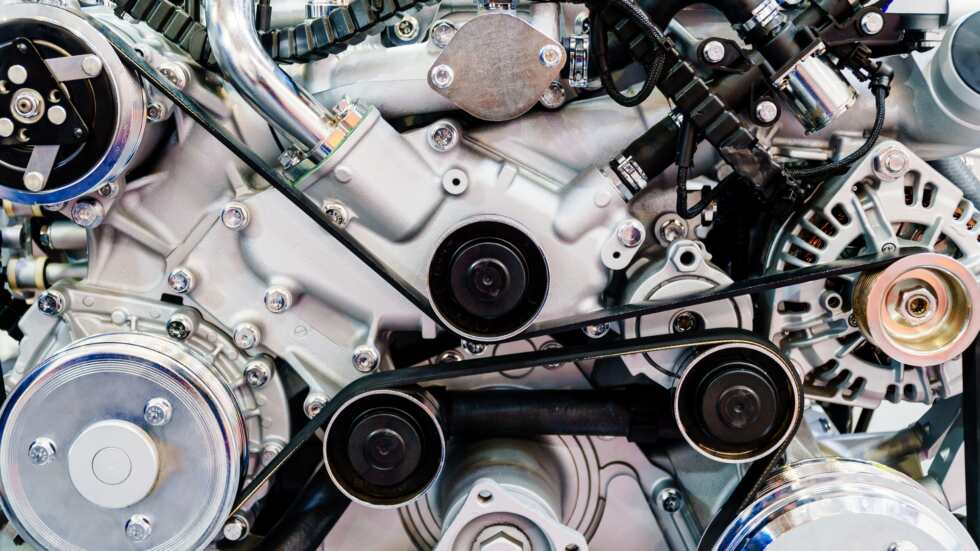Regular vehicular maintenance should be a top priority however people often wait for their vehicle to malfunction before taking action. This approach has proven to be far more expensive and inconvenient so carrying out regular preventative maintenance such as an oil change is usually the best option to avoid possible car troubles in the future.
When driving a vehicle daily it should be pretty easy to notice when something is not right. Maybe a weird sound or smell or sometimes vehicles may even stall but whatever the problem there are several tell tale signs that will indicate to you that your car may definitely be in need of urgent maintenance.
 Why a Regular Oil Change Matters
Why a Regular Oil Change Matters
One very important form of maintenance drivers should always keep in mind is to regularly change or top up oil in their vehicle. Nevertheless although people know that doing this is crucial to maintaining a proper working vehicle they’re some who don’t exactly know when its time for an oil change.
According to research conducted most car manufacturers now recommend oil changes every 7,500 -10,000 miles although some makers may specify changes every 5,000 miles. Despite this the age and make of vehicles as well as certain driving habits can certainly determine how often a person should get an oil change.
For instance The Ford Motor company suggest that drivers with normal driving habits driving a 2009 model vehicle change should the oil in vehicles every six months or 7,500 miles whichever is arrived at first while drivers driving a 2006 model would need a change every 5,000 miles or six months whichever comes first.
One of the main contributors to reduced oil life in vehicles is driving short distances below highway speeds as it is said that “5,000 miles on the highway in five months is way better than 1,500 miles of in-town driving within that same five months period.”
Apart from this, regular oil changes can give drivers the opportunity to inspect vehicles to see whether brake fluid and coolant are adequate. They are also able to ensure hoses and clamps are in place and whether spark plugs need changing.
Determining how often you should change the oil in your vehicle is pretty simple and people could either take their car to a reputable mechanic or auto shop or they can check their vehicle owner’s manual to assist them with what to do. Given all the important factors outlined it leaves you to ask yourself “Should I get an oil change?” Don’t hesitate check your vehicle today to see if an oil change is required. Contact us for more information.
Frequently Asked Questions
1. How often should you change the oil in your car?
The frequency of oil changes depends on your vehicle’s make, model, and driving habits. Most modern cars recommend an oil change every 7,500 to 10,000 miles. However, if you drive an older model or frequently make short trips, you may need to change your oil every 5,000 miles. Always consult your owner’s manual for manufacturer-specific recommendations.
2. What are the benefits of regular oil changes?
Regular oil changes keep your engine running smoothly by reducing friction and wear on moving parts. It also helps to prevent overheating and removes dirt and debris that could harm your engine. Routine oil changes can improve fuel efficiency and extend the life of your vehicle, saving you from expensive repairs in the long run.
3. What happens if you don’t change your oil?
Neglecting to change your oil can lead to significant engine damage. Old, dirty oil loses its ability to lubricate and clean your engine, causing overheating, friction, and wear. Over time, sludge buildup can occur, leading to potential engine failure. A seized engine due to neglected oil changes is an expensive repair or replacement.
4. Can I switch between synthetic and conventional oil?
Yes, you can switch between synthetic and conventional oil, but it’s essential to follow your vehicle manufacturer’s guidelines. Synthetic oil offers better protection and lasts longer, especially in extreme temperatures. However, conventional oil may be suitable for older vehicles or those driven under normal conditions. Consult your owner’s manual for the best oil type for your car.
5. Why does my oil change frequency depend on my driving habits?
Driving habits affect how hard your engine works and how quickly oil degrades. Frequent short trips, stop-and-go traffic, and driving in extreme weather can cause oil to break down faster. Highway driving at consistent speeds is less taxing on the engine, allowing oil to last longer. Your driving style plays a key role in determining oil change intervals.
6. Should I change my oil more frequently if I tow or haul heavy loads?
Yes, if you regularly tow or haul heavy loads, your engine works harder and generates more heat, which can cause oil to break down faster. In these cases, more frequent oil changes are recommended to maintain proper engine lubrication and prevent wear and tear. Check your owner’s manual for guidelines on how towing affects oil change frequency.
7. Can an oil change improve fuel efficiency?
Absolutely! Fresh oil reduces friction in your engine, allowing it to run more efficiently. This, in turn, can improve your vehicle’s fuel economy. According to the U.S. Department of Energy, using the recommended grade of motor oil and changing it regularly can improve your gas mileage by 1-2%, which adds up over time.
8. What type of oil is best for my car—synthetic or conventional?
The best type of oil for your car depends on several factors, including your vehicle’s age, driving habits, and climate. Synthetic oil offers superior protection, especially in extreme temperatures, and lasts longer. However, conventional oil may be appropriate for older vehicles. Always check your owner’s manual for the recommended oil type.
9. How can I tell if my car needs an oil change?
Some telltale signs that your car needs an oil change include engine noise, knocking, or ticking sounds. You may also notice the oil change or check engine light on your dashboard. Additionally, if your oil appears dark and gritty when you check it, it’s time for a change. Following the manufacturer’s guidelines is always the best way to stay on top of oil changes.
10. Do oil changes include other maintenance services?
Yes, most oil change services include a basic inspection of other essential fluids like brake fluid, coolant, and transmission fluid. Your mechanic may also check your air filter, tire pressure, and wiper blades during the oil change service. It’s an excellent opportunity to ensure that your vehicle is running smoothly and address any minor issues before they become major problems.


 Why a Regular Oil Change Matters
Why a Regular Oil Change Matters

